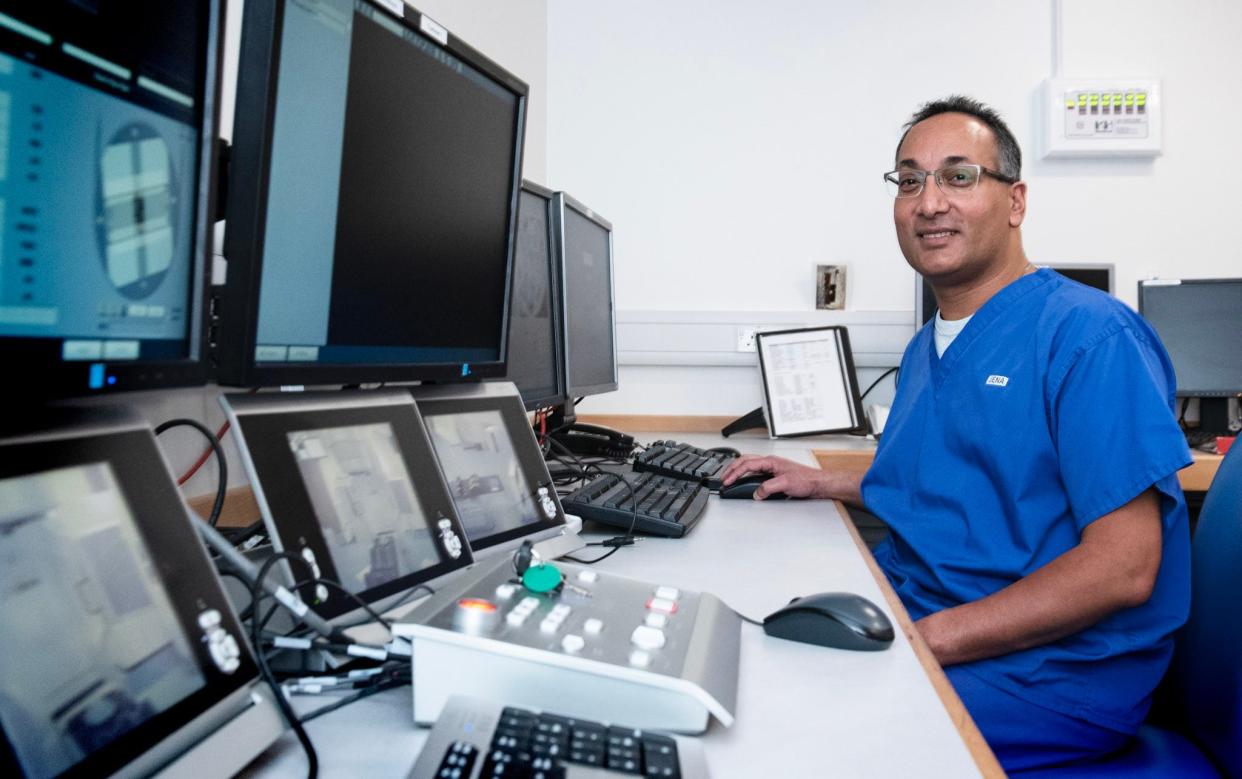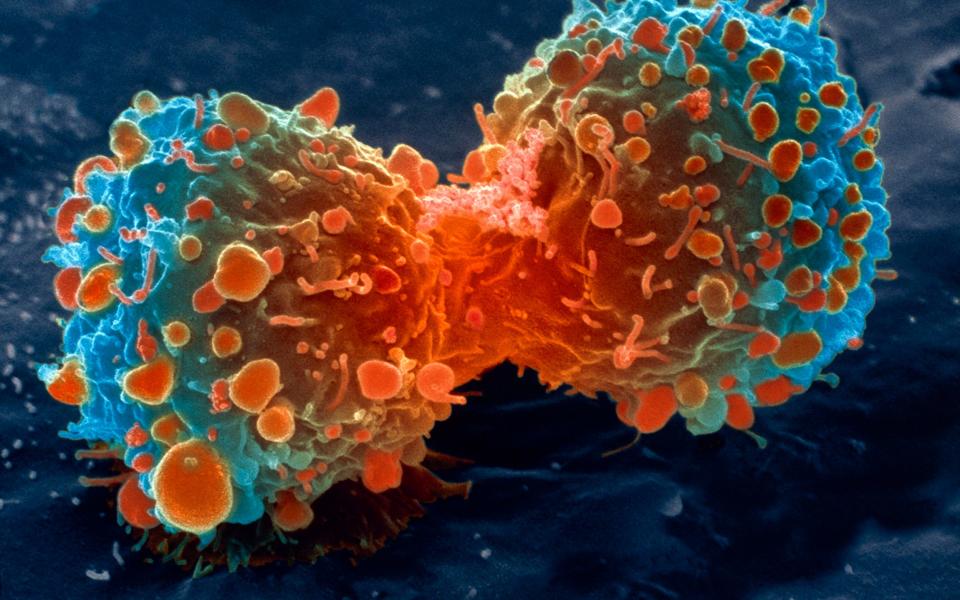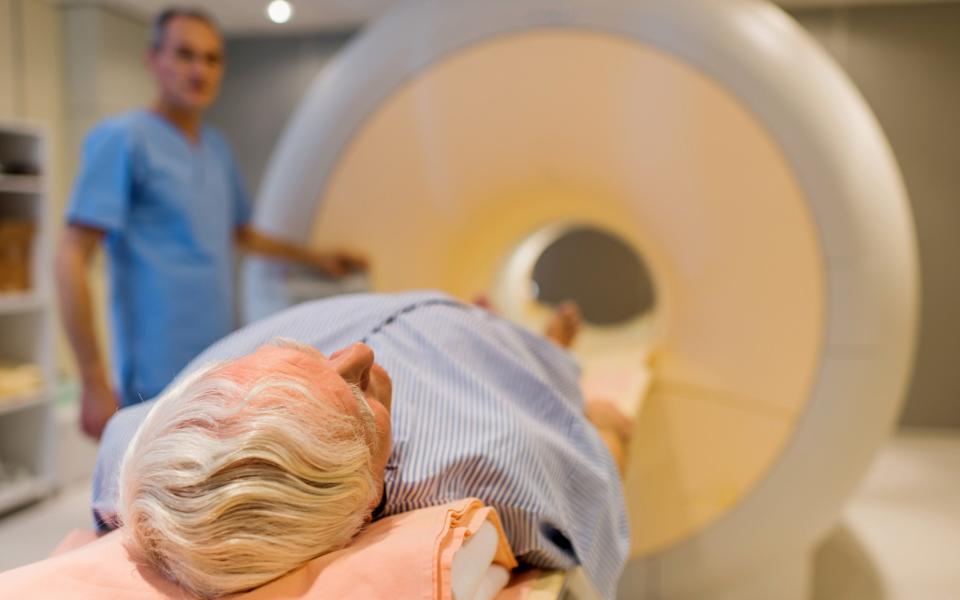Cancer-detecting AI to be offered to all hospitals in England within weeks

- Oops!Something went wrong.Please try again later.
- Oops!Something went wrong.Please try again later.
Artificial intelligence that is twice as fast as doctors at spotting deadly disease will be rolled out across the NHS to “tackle the scourge of cancer”.
The technology will be introduced to every hospital in England within weeks, in a move that Victoria Atkins, the Health Secretary, said constitutes a “historic moment in our treatment of this terrible disease”.
Under the £15.5 million plan, the technology will start being rolled out to every NHS radiotherapy department in England.

Rishi Sunak, the Prime Minister, said the measures, which are being announced ahead of a global summit on artificial intelligence (AI), would help the UK to cut waiting lists and “become the number one place for AI innovation”.
The techniques allow for far more precision in directing radiation beams, to kill cancerous cells while sparing as many healthy ones as possible.
Normally, medics can spend up to two hours working through 100 different scan cross sections, to “contour” the bones and organs and work out where to target.
A trial at Addenbrooke’s Hospital in Cambridge, which trained the AI programme with Microsoft, was able to work up to two and a half times as quickly.
Such moves free up radiographers to treat far more patients, speeding efforts to slash waiting list backlogs.
Radiotherapy is used as part of treatment for about half of people who recover from cancer. AI techniques are expected to be used in about 70 per cent of such cases in the future.

Ms Atkins told The Telegraph: “We need to use all the tools at our disposal to tackle the scourge of cancer. NHS staff already carry out fantastic work, but I’m determined that we go further, faster to support patients and ultimately save lives.
“That’s why we’re using groundbreaking artificial intelligence to revolutionise the way we deliver radiotherapy – speeding up the time between referral and treatment to benefit tens of thousands of people across the country.”
“Make no mistake, this is a historic moment in our treatment of this terrible disease – never before has AI been deployed so widely across the health service, with so many who stand to benefit.”
Such innovation would free up precious time for NHS staff and cut waiting lists for patients, she said.
‘Matching the pace of the technology’
On Tuesday, Mr Sunak will attend a virtual meeting of world leaders as part of the AI Safety Summit in Seoul, a follow-up to a gathering he hosted at Bletchley Park last autumn.
The meeting of nations, AI companies, academia and civil society resulted in the Bletchley declaration, which was signed by 27 countries and the EU, committing the signatories to take a global approach to the technology.
Mr Sunak said: “Thanks to Bletchley, we have created a legacy of international collaboration, which means we are matching the pace of the technology.
“AI-powered medical advances – like in radiotherapy – are evidence of this and we must take advantage of them.
“That’s why we are pumping £15.5 million into the NHS so it can be rolled out across England – to help cut waiting lists and make the UK the number one place for AI innovation.”
‘Game-changing tool’
The technology has been evaluated by the National Institute for Health and Care Excellence, which published draft guidance on AI last year, concluding that the technology can be used in the NHS while more evidence is generated.
The guidance says all contours created by AI must still be reviewed by a trained healthcare professional and edited as needed, before being used in radiotherapy treatment planning.
Dr Imogen Locke, national speciality adviser for radiotherapy at NHS England, said: “The NHS is embracing AI and its benefits for cancer patients, and every radiotherapy department will soon be able to offer the latest technology to help diagnose and treat patients more quickly.
“We are seeing a record number of referrals for suspected cancer and game-changing tools like AI will help the NHS continue the significant progress made in tackling the longest waits for patients.”

